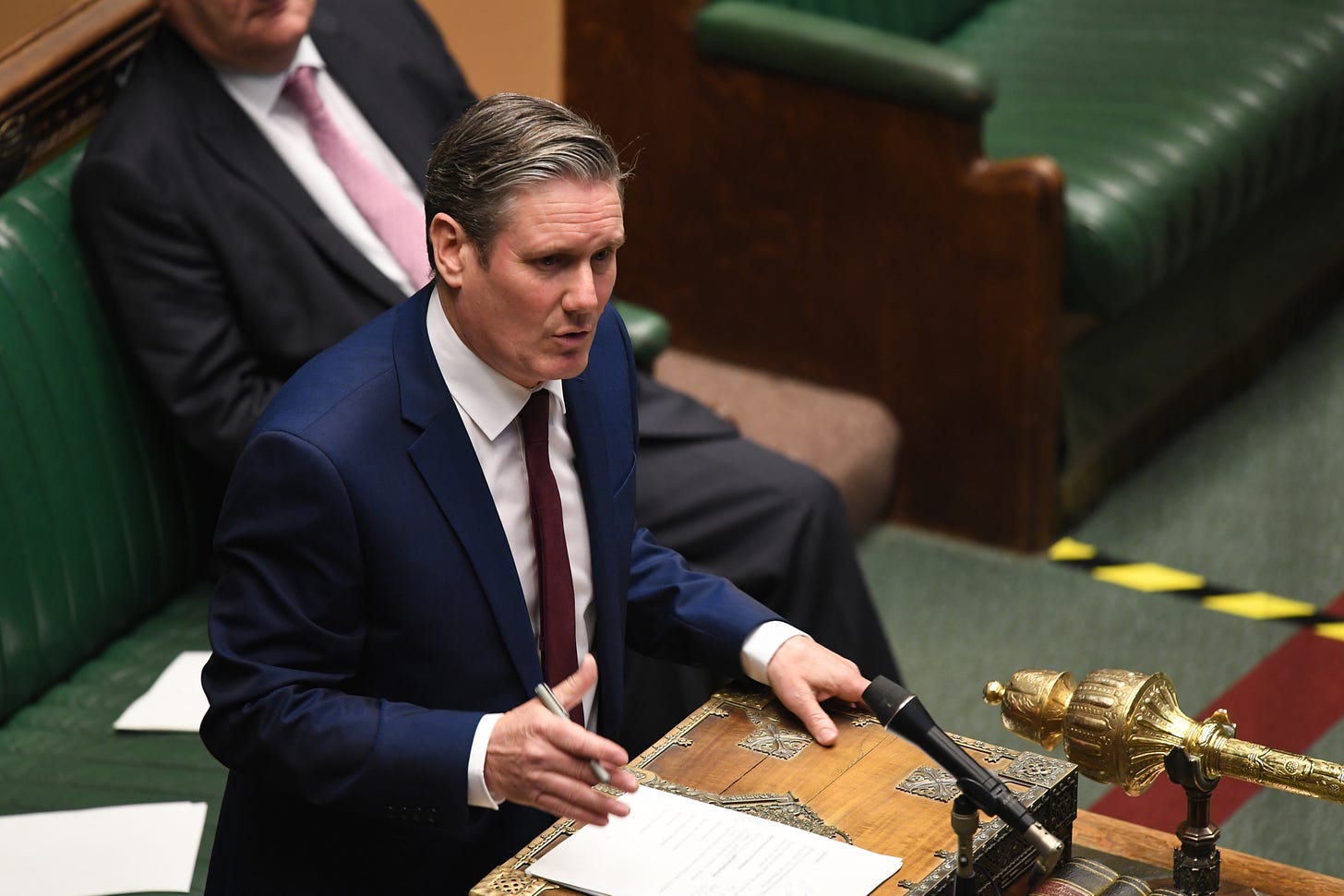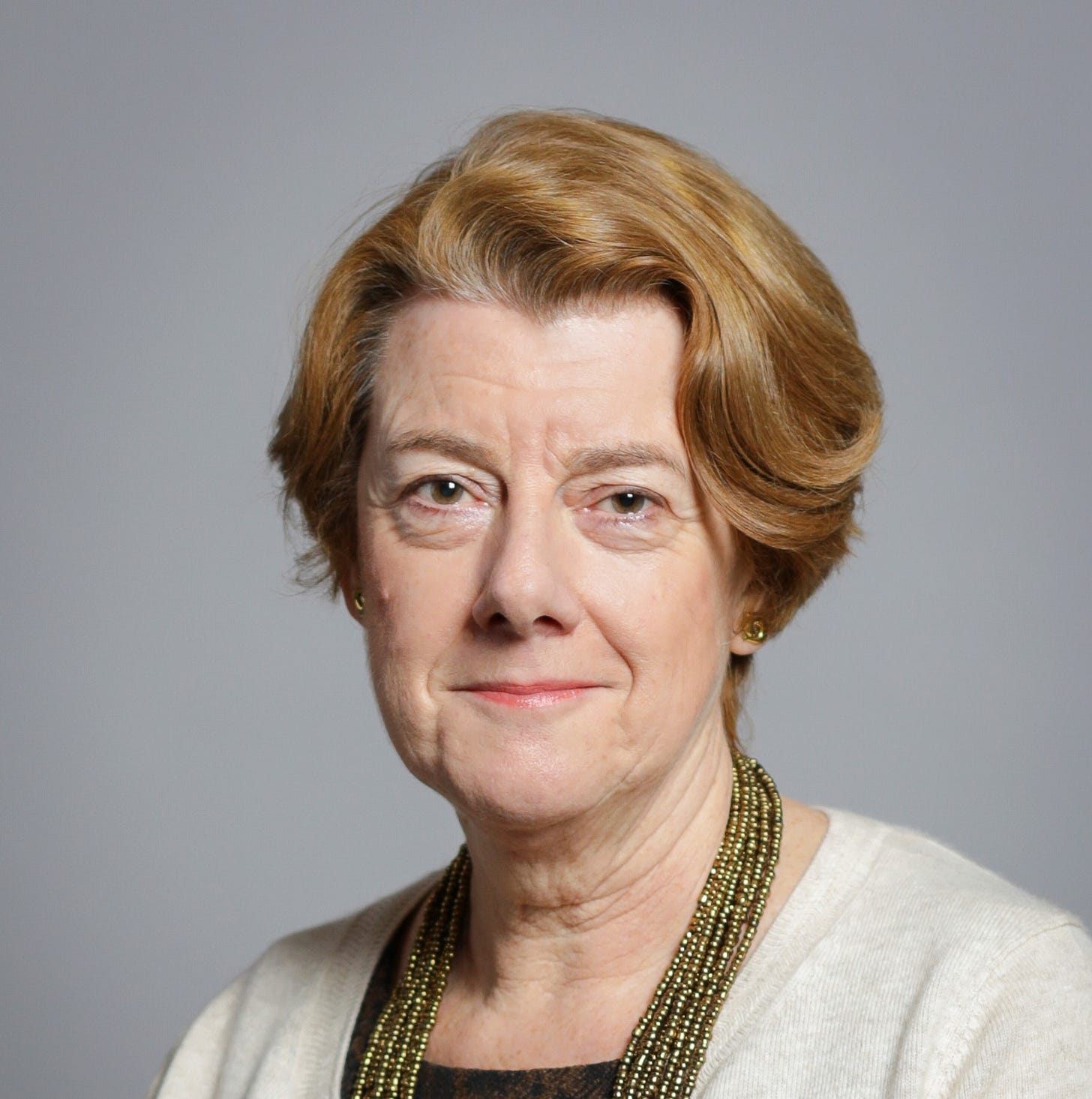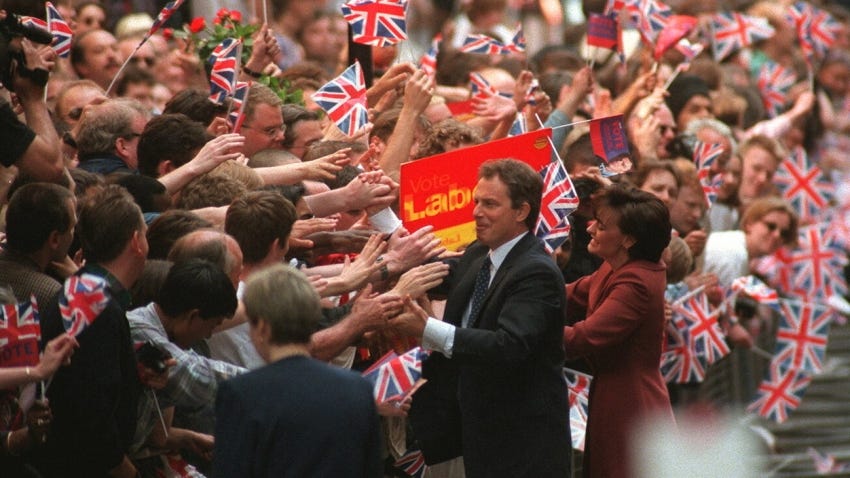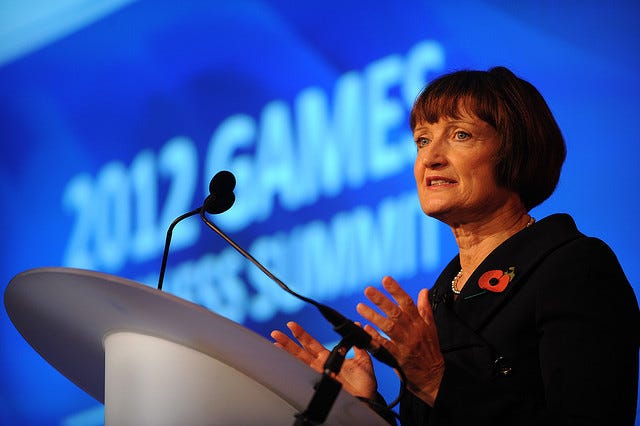Q & A with Sally Morgan
One of Tony Blair's longest-standing political advisors discusses campaigning, effective opposition, and how Labour can avoid another electoral defeat.
Few people in the Labour Party orbit have a CV as long as Sally Morgan. She served as director of campaigns for marginal seats under Neil Kinnock, director of campaigns under John Smith, a senior aide and later political secretary to Tony Blair, and was a minister for Women and Equalities. Now a Labour peer in the House of Lords, she spoke to IFTC about the language of campaigning, the art of effective opposition, and how Labour can prevent another electoral defeat.
This interview has been lightly edited for brevity and clarity.
You were a teacher before entering politics. How did you end up working for the Labour Party?
A lot of these things are accidental. Charles Clarke approached me because they were looking for somebody to do the student organizer post at the Labour Party. It was a crucial time for trying to stop Militant from taking over the student organization. I said I’d do it for a bit.
Then I went to my first conference, when I was still teaching actually, and the Militant guys were really foul. They sort of surrounded me and threatened me and said, "don't take this job.” That just spurred me, I thought to hell with this. So I took it of course.
I just got sucked in at that point. I did student organizer and then very quickly had a broader range of responsibilities.
In 1993, local elections and by-elections in Newbury and then Christchurch showed voters were ready to move away from the Tories, but Labour didn’t emerge as the immediate home for those voters. How did the party turn it around before the European elections in 1994, when they secured an electoral landslide?
There is a lot of movement here. There was increasing disillusion with the Tories. It was completely slipping from them.
John Smith had got a new energy and fire in his belly. In the nine months to a year before he died, he had gone up a gear. There was a level of confidence in the party. The electorate was shifting.

Also, John had very specifically put Tony Blair and Gordon Brown in pivotal places. He had immense intellect, but he also was good at handing areas of responsibility over. He saw those two as people he was investing in and gave them quite a lot of freedom.
After Smith’s death, you went to work in Tony Blair's personal office? What were the major challenges, for you personally moving from the party to the leader’s office, and also the party electorally adapting to a new leader?
I was close to Neil Kinnock and Tony. I was less close to John Smith. I got on with him fine. I was obviously appointed by him as director of campaigns and elections, but I was always more of a modernizer than he was.
I had already been meeting Tony quite regularly. A group of us had been meeting for at least a year before John died. Not in a devious way, but as this modernizing group looking for how to keep the pressure on. I can't say I found it difficult switching from one leader to another,
The politics I enjoyed. We were three years out from an election, heading for what looked like good times. The country was coming with us. The challenge was the party.
We spent a lot of time with the party—hard conversations with general secretaries in Indian restaurants up Edgeware Road, long meetings with the Trades Union Congress, and meetings with the National Executive Committee. We had to build support. We didn't want a large oppositional group.
Female voters were a major part of the story of 1997. In 1992, you had a larger share of women backing Conservative candidates than men. In 1997, women line up behind Labour. What caused that shift?
We worked really hard on women. There had been a long campaign [for greater female representation] in the Labour Party that I was always personally sympathetic to, even though they were treated by some people as difficult women. We had to make serious progress.
We adopted all-women shortlists and we [implemented] it in a focused political way of working out the seats we thought were good marginal seats, and working to get very good women in. We were getting rid of not terribly exciting men, bluntly, and getting really good women.
Then we also did a lot of work in terms of our language. If you end up getting your language and your policies described in a way that works for women, it usually works for everybody. So instead of talking about cancer, if Tony was doing an interview, he would talk about Auntie Audrey who had breast cancer. We did a lot of work with all our politicians about language and telling stories. Bringing things from the macro to the local.
Nobody, women or men, has a clue what you're talking about when you say, "I'm going to put this many hundreds of thousands and this many billions into this [plan]." If you say, "every primary school will have X," it is meaningful to people. We tried to relate policies to people's lives.
We also saw that our key voters were 25 to 45. Young voters were moving to us anyway. We thought we were never going to get pensioners. So family and family formation were the absolute bedrock for us. They'd moved to Thatcher and they'd never come back to Labour. In many cases, women were the most important people in those groups.
As the Tories choose a new leader, are we going to see a repeat of 1992, where a change in leadership allowed the party to shed some of the political baggage of the Thatcher years and secure an electoral win? And if so, how can Labour avoid it?
I don't think so, but I don't think we know yet. Labour has got to go up a gear. As opposition, you have to oppose and challenge, but above everything you've got to slightly surprise the electorate.
Keir [Starmer] did that on energy [prices]. It was bold. Sometimes it doesn't matter if it [causes] a row, that's fine. But you need to choose stuff that's symbolic and interesting and makes people feel what the Labour Party is.

Choose an issue and every day, go on about it. Put questions down, do debates on it, and just harass them. Really harass them. Take health. I think Wes [Streeting] is good, but if I was Wes, I would talk about social care every single day . That's all I'd talk about—because the biggest problem at the moment is that hospitals are full of people who shouldn't be in hospital, which means ambulances are sitting outside.
Then you come out with an interesting policy that says, "okay, you might not all like this, but this is where we are, this is what we're going for." I don't know what that is on social care, but there will be something. You just have to choose issues where the government are messing around. Then go for it. The policy might be a bit challenging for some parts of the Labour Party. You don't do that deliberately, but you don't worry too much about it.
You said that Blair made his language more people-focused. Do you think that Keir Starmer’s party are doing a good enough job at this?
They're quite inexperienced. They've gone through Brexit, but they haven't gone through [any] big domestic arguments. They've fought Corbyn, but they've not been in opposition for a very long time themselves. I'm not sure they're terribly experienced at street fighting.
But then social media has made it really difficult for people to open up and give a bit of themselves. They're destroyed if they do. I think that's really sad.
Keir is at his best when he talks about his family—not his current family, but his mum and dad. His toolmaker dad and nurse mum with long health conditions. It's very powerful. I hear him talk about it if he's doing Desert Island Disks or something like that, but not enough in day-to-day interviews.
People can also talk about their constituents more. "I was talking to three people in my surgery yesterday”, or “I was in a nursery in my constituency yesterday." They don't do enough of that.
We had this period, between 2001 and 2005, where we used to get Tessa Jowell to go and do regional visits. She did local radio phone-ins and she would always come back with an issue, or a point at which we'd overregulated. We were quite good at finding issues which we could [immediately] put right.
She would go out and say, "well, last week I was in Doncaster. And I can say that we're now putting secondary legislation through, because that [regulation] is obviously wrong" or whatever.
All politicians are out there talking to people, but they don't bring that into their politics. They keep it quiet. I'm sure they use it locally. But they don't use it enough in national politics.
Is there something about campaigning you think doesn’t get enough attention?
People who are good at politics love campaigning.
If Tony was down in the dumps, we used to send him out campaigning for a day. He always came back saying, "somebody's just told me this, and I want that looked into." That's where a lot of the health reforms came from, he would talk to doctors.
He used it to feed his brain in terms of policy, but he also just liked meeting people. Good politicians do. The really good thing about campaigning is the ability to talk to people, hear things, and act on them.
Before you go…
Friend of IFTC Anthony Barnett remembers the shock of the Fatwa against Salman Rushdie in Byline Times.





